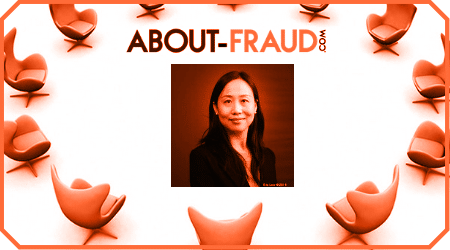
DataVisor CEO Yinglian Xie on the Democratization of Online Fraud Prevention
Yinglian Xie co-founded DataVisor in 2013 after establishing a reputation as a highly regarded researcher, author, and conference contributor. Yinglian has over 10 years of experience in security, specializing in fighting large-scale attacks with AI and Big Data technologies. Recently, she spoke with About-Fraud about her vision for an internet where more companies have access to more sophisticated online fraud prevention technologies.
Mike Russell: From what you’re aware of, is there any industry or region that’s more under fraud pressure currently?
Yinglian Xie: Digital transformation makes it easier for fraudsters to launch attacks from anywhere. Since there’s a strong and widespread move toward digitization, all industries and regions are experiencing more fraud.
In tandem, we see businesses offering more services. For example, merchants are adding social components to their platforms. They’re incentivizing referrals. Some are even experimenting with consumers at the point of checkout. This blending is changing the fraud landscape, too.
For that reason, it’s important to pay attention to all steps in a customer’s lifecycle—from their first interaction through activity to closure—in order to detect transaction fraud.
MR: What is the next trend that you see in the provider space pushing product development?
YE: The perspective is broadening from a historically isolated focus to one that is concerned with matters of scaling to prevent more varied attacks against a much larger user population. That has led a natural progression toward supervised machine learning, which is excellent at detecting known types of fraud attacks.
That perspective will continue to broaden, from reactivity toward proactivity. Since more people and interactions will be vulnerable to more types of fraud, we need unsupervised machine learning to change the frame away from ‘one step behind’ toward prevention.
Unsupervised methodologies that discover new, unknown attacks as they’re happening is a capability that everyone should move toward, so we don’t have to worry about reducing loss and damage.
MR: What’s the biggest product challenge for DataVisor?
YE: We’re in an era where an organization’s user base has the potential to increase rapidly. As their prospective partner, we have to be able to detect and prevent novel fraud attacks in real time with accurate decisions, all while being smart about delivering a good user experience and minimizing false positives.
Unsupervised machine learning has the capacity to deliver on that promise. With it comes an inherent and dramatic increase in complexity—from transaction by transaction, event by event, or user by user, toward cross-examining all of these elements over time.
We want to make the solutions more scalable, more generalized, and more automated, so that we can derive the maximum benefit from the most advanced AI and parallel computing technologies, and make them easily accessible to everyone.
MR: Is the online fraud prevention market more difficult for new entrants enter today than it was when DataVisor started?
YE: In the past, good product features and ease of deployment may have been the most important criteria for providers. Now, we’re in an era where we want AI to help us solve problems.
Open-source technologies promise to make in-house teams more powerful. That’s raising the barrier for third-party providers.
A requirement for a new team that wishes to enter this space can be high. Customers and technologies are more sophisticated. Talent needs to be strong in technology and our nuanced subject domain.
| Tagged with: |
| Posted in: | Interviews |
